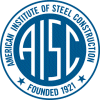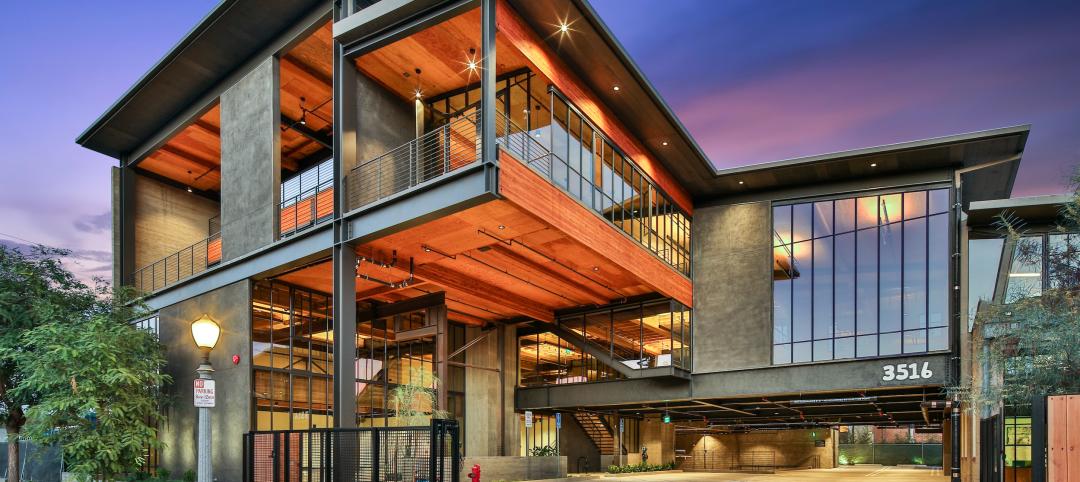The American Institute of Steel Construction (AISC) is working to bring that vision to reality by developing a three-step interoperability strategy to evaluate data exchanges and integrate structural steel information into buildingSMART's Industry Foundation Classes (IFC). IFC is an open and neutral data exchange format that covers multiple disciplines across the construction industry.
AISC has been at the forefront of advancing interoperability through open standards since adopting the CIMSteel Integration Standard (CIS/2) in 1998 as an open standard for the structural steel industry. Since then, however, the landscape of software interoperability and integration has changed dramatically and even after a decade of progress, the issue is not solved. In addition, CIS/2's "steel-only" format has meant that other solutions were needed as other disciplines began demanding data exchange.
These cumulative changes have led to AISC's new strategy to advance interoperability across the construction industry: assess and enhance data exchanges available today and integrate that knowledge into IFC, a common data schema that makes it possible to hold and exchange data between different proprietary software applications. Although IFC has yet to address some details of a building's life cycle, and does not yet cover the depth of data that CIS/2 encompasses, the IFC schema aspires to cover every aspect of design, procurement, manufacture and assembly, and operations and maintenance.
Acknowledging that raising IFC to the level required by the structural steel industry will take time, AISC has adopted a three-part strategy, outlined as follows:
- Short term: Ensure model data can be exchanged as needed by the structural steel industry, regardless of the nature of the exchange or format used
- Medium term: Promote IFC and make the format more accessible and understood by working with buildingSMART, other trade organizations, academia and subject experts.
- Long term: Facilitate the development and implementation of IFC to satisfy the needs of the structural steel industry.
This new strategy maintains AISC and the structural steel industry's leadership in interoperability and ensures that data related to structural steel can be exchanged up and down the supply chain and with other disciplines and trades. AISC holds the view that open standards will never be able to transfer every piece of data a user or client may want, or indeed that two software programs could exchange.
"A combination of open standard and proprietary enhancement will always be state of the art, but the key is to always be raising the quality of data exchanged within the open format," commented Chris Moor, AISC director of industry initiatives. "To that end, this overall strategy feeds itself: The short term strategy is an ongoing effort and takes advantage of the myriad of exchanges available, now or in the future, documenting them and learning from them - what data is exchanged and why. This information then forms the basis of long term goals to develop and implement IFC to a very high standard, raising the bar once more for open standards."
Added Deke Smith, executive director of the buildingSMART alliance, "I look at AISC as the gold standard for associations. AISC is implementing the profound changes necessary to transform the industry as a service to the constituents they represent. If all the market sectors had organizations representing them with this level of understanding and dedication to getting the job of interoperability done we would see a far more effective construction industry in the United States, one that was more competitive internationally."
More information about the evolution of interoperability and AISC's novel approach to moving it forward can be found in the Fall 2011 issue of the Journal of Building Information Modeling (JBIM), available for free downloading at http://www.wbdg.org/references/jbim.php. A copy of the article is also available on AISC's website, here. BD+C
Related Stories
Regulations | May 8, 2023
Supreme Court case likely to have huge impact on Clean Water Act
A case before the Supreme Court will likely determine how the Clean Water Act is interpreted and the ruling could open up new areas for development within or adjacent to wetlands.
Senior Living Design | May 8, 2023
Seattle senior living community aims to be world’s first to achieve Living Building Challenge designation
Aegis Living Lake Union in Seattle is the world’s first assisted living community designed to meet the rigorous Living Building Challenge certification. Completed in 2022, the Ankrom Moisan-designed, 70,000 sf-building is fully electrified. All commercial dryers, domestic hot water, and kitchen equipment are powered by electricity in lieu of gas, which reduces the facility’s carbon footprint.
Multifamily Housing | May 8, 2023
The average multifamily rent was $1,709 in April 2023, up for the second straight month
Despite economic headwinds, the multifamily housing market continues to demonstrate resilience, according to a new Yardi Matrix report.
University Buildings | May 5, 2023
New health sciences center at St. John’s University will feature geothermal heating, cooling
The recently topped off St. Vincent Health Sciences Center at St. John’s University in New York City will feature impressive green features including geothermal heating and cooling along with an array of rooftop solar panels. The geothermal field consists of 66 wells drilled 499 feet below ground which will help to heat and cool the 70,000 sf structure.
Office Buildings | May 4, 2023
In Southern California, a former industrial zone continues to revitalize with an award-winning office property
In Culver City, Calif., Del Amo Construction, a construction company based in Southern California, has completed the adaptive reuse of 3516 Schaefer St, a new office property. 3516 Schaefer is located in Culver City’s redeveloped Hayden Tract neighborhood, a former industrial zone that has become a technology and corporate hub.
Mass Timber | May 3, 2023
Gensler-designed mid-rise will be Houston’s first mass timber commercial office building
A Houston project plans to achieve two firsts: the city’s first mass timber commercial office project, and the state of Texas’s first commercial office building targeting net zero energy operational carbon upon completion next year. Framework @ Block 10 is owned and managed by Hicks Ventures, a Houston-based development company.
Market Data | May 2, 2023
Nonresidential construction spending up 0.7% in March 2023 versus previous month
National nonresidential construction spending increased by 0.7% in March, according to an Associated Builders and Contractors analysis of data published today by the U.S. Census Bureau. On a seasonally adjusted annualized basis, nonresidential spending totaled $997.1 billion for the month.
Life of an Architect Podcast | May 2, 2023
Life of an Architect Podcast Ep. 124: Show Me the Money
I get asked a lot about how much money an architect makes. Without understanding a few parameters, that’s like trying to buy a car by the pound. I spend a fair amount of my time discussing the architectural marketplace, where we can find value, what’s the going salary rate based on skill set and experience, and how badly we need this spot or that spot filled.
Hotel Facilities | May 2, 2023
U.S. hotel construction up 9% in the first quarter of 2023, led by Marriott and Hilton
In the latest United States Construction Pipeline Trend Report from Lodging Econometrics (LE), analysts report that construction pipeline projects in the U.S. continue to increase, standing at 5,545 projects/658,207 rooms at the close of Q1 2023. Up 9% by both projects and rooms year-over-year (YOY); project totals at Q1 ‘23 are just 338 projects, or 5.7%, behind the all-time high of 5,883 projects recorded in Q2 2008.
Architects | May 1, 2023
HOK names Eli Hoisington and Susan Klumpp Williams as Co-CEOs
HOK has appointed Eli Hoisington, AIA, LEED AP, and Susan Klumpp Williams, AIA, LEED AP, as its new co-chief executive officers, succeeding Bill Hellmuth, FAIA, LEED AP, who passed away on April 6, shortly after his scheduled retirement.

















